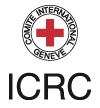 Sana'a. - In Yemen, the situation of persons with disabilities gives reason to celebrate, but festivities went silently, perhaps even unnoticed. "Yemen is one of the most advanced countries in terms of the development of social inclusion mechanisms for persons with disabilities," said William Sleiman, who manages the ICRC's physical rehabilitation programme on Friday in Sana'a. "Had it not been for the security-related and economic challenges Yemenis face, the implementation of those plans would have put Yemen very high on the list of countries that strive to improve the social situation of people with disabilities."
Sana'a. - In Yemen, the situation of persons with disabilities gives reason to celebrate, but festivities went silently, perhaps even unnoticed. "Yemen is one of the most advanced countries in terms of the development of social inclusion mechanisms for persons with disabilities," said William Sleiman, who manages the ICRC's physical rehabilitation programme on Friday in Sana'a. "Had it not been for the security-related and economic challenges Yemenis face, the implementation of those plans would have put Yemen very high on the list of countries that strive to improve the social situation of people with disabilities."
On 15 December, the ICRC signed an agreement with the High Institute for Health Sciences in Sana’a to establish a prosthetic and orthotic teaching department with the aim of ensuring a steady stream of technically skilled staff. "Not only will this complement our physical rehabilitation programmes in Sana’a, Mukalla, Aden, Taiz and Saada, but it will also ensure that Yemen keeps its trained professionals to better serve those who most need their skills in their own towns, villages and governorates," said Mr Sleiman.
Bringing relief to people suffering hardship
Between October and December, the ICRC provided one-month food rations, blankets, tarpaulins, kitchen sets, hygiene items and sleeping mats for over 10,000 people in Al Hazm and Al Ghail districts in Al Jawf governorate. It also provided aid for more than 12,000 people in Al Baten and Al Majzar districts of Al Maareb governorate. In Al Qutn district of Hadramaut, over 4,000 displaced people also received aid to tide them over for two months.
To help people affected by conflict or other violence rebuild their lives and fend for themselves, the ICRC distributed 308 metric tonnes of potato seed and 71 tonnes of fertilizer to some 500 farmers in Abyan.
In Saada, in the northern part of the country, 167 needy farmers working to upgrade farms and clean wells were given cash grants to cover their immediate basic needs.
Assisting hospitals and physical rehabilitation centres
To help medical facilities cope with needs that may arise when fighting breaks out, the ICRC gave courses on emergency procedures for a total of 60 emergency room staff in Seyun and Al Qatari hospitals in Hadramaut, and Al Jamhouri Hospital in Aden. The courses covered administrative tasks, such as arranging an emergency room to handle mass casualties, and such medical skills as basic life support and triaging. ICRC health staff also provided first-aid training for 62 weapon bearers in different parts of the country.In addition to providing hospitals with medical support, the ICRC modernized the floor in 12 parts of Awmarrah Hospital in Sana’a governorate. It also renovated health-care centres in Mataher and Bani Oweir in Sahar district, and Majz district of Saada, which together serve some 51,150 patients.
Providing clean water and sanitation
Between October and December, in cooperation with the Yemeni authorities and local communities, the ICRC completed upgrades to water networks in Bani Oweir, in Saada governorate, and Harf Sufyan, in Amran governorate, serving a total of 11,000 people.
The organization also completed the installation of booster pumps in Al Magzara and Al Thalia pumping stations in Aden, serving almost 112,000 people, and finished some of the tasks involved in overhauling four pumping stations for the sewage system in Khormakser in Aden. In addition, the water network in Al Ahwar district in Abyan, serving nearly 22,000 people, was repaired and put back into operation.
Visiting detainees and restoring contact between family members
In the past three months the ICRC carried out visits in three places of detention, where it monitored the treatment and living conditions of nearly 700 detainees. ICRC staff also worked to improve access to water in the female yard of Ibb Central Prison and upgraded the sewage system of Saada Central Prison.
During the same period, the ICRC distributed 329 Red Cross messages to migrants and refugees who had lost contact with their relatives in the Horn of Africa. In addition, 748 messages were collected from people in Yemen for distribution to family members abroad. The ICRC also issued 75 travel documents for Somali and Ethiopian refugees to be resettled in temporary asylum camps in Romania and Slovakia.
The ICRC arranged 55 phone calls and videoconferences between families in Yemen and relatives detained in Guantanamo.
Promoting compliance with international humanitarian law
Reminding parties to a conflict of their obligation to protect civilians is a fundamental part of the ICRC's work. The organization also endeavours to promote and strengthen knowledge of international humanitarian law by organizing presentations and training for military and police forces and other weapon bearers. Accordingly, information sessions on international humanitarian law and on international standards of law enforcement in peace and in war were recently organized for 34 members of the “Military Operations for Southern Security and Military Council in Aden” and some 60 officers from the Fourth Military Region in Aden.
Working together with the Yemen Red Crescent Society
The ICRC and the local branch of the Yemen Red Crescent Society delivered medical assistance to the main hospital in the Sayun area. The ICRC also provided training for over 50 volunteers from Sayun, Maareb and Al Jawf in the rapid assessment of humanitarian needs during emergencies and in dead-body management.
Source: icrc.org







